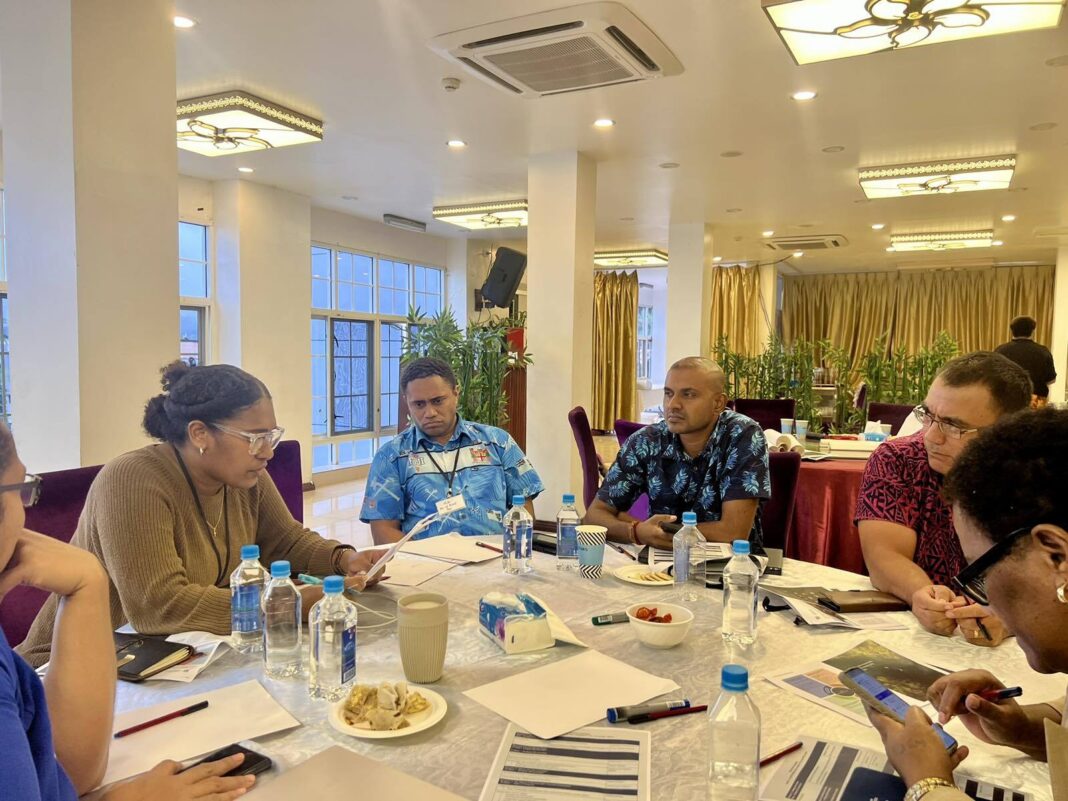Key Government stakeholders today gathered in a collective effort to progress the National Sustainable Tourism Framework. The Ministry of Tourism and Civil Aviation officially led the Meeting.
The National Sustainable Tourism Framework (‘NSTF’) seeks to outline the strategic direction and goals of the Fiji tourism sector over the next ten years.
This requires synergy with other Government agencies’ development priorities to ensure the Framework is aligned with and reflective of the industry’s future needs.
As part of a two-phase process to develop the Framework, Phase A identified vital strategic objectives and priorities for the NSTF to consider and inform discussions with the Fiji Government stakeholders.
Today’s workshop also included discussions and group work on our collective role in building the future we want and the values and principles underpinning tourism development.
In welcoming the participants, the Permanent Secretary for Tourism and Civil Aviation and Chair of the NSTF Steering Committee, Salaseini Daunabuna, said that it was critical to ensure that different agencies’ priorities complement each other for a robust framework.
“As Government officials, we know how important it is to set ourselves forward-looking strategic plans that represent the best interest of the stakeholders we serve. But having a plan alone isn’t enough.
We need to ensure they are well-consulted, adaptive, responsive and implementable. It should act as a roadmap for our respective Ministries, Government, and the nation,” said PS Daunabuna.
In addressing the workshop, the Acting Prime Minister and Minister for Tourism and Civil Aviation, Hon. Viliame Gavoka, highlighted how tourism can influence and uplift other industries and people’s livelihoods.
DPM Gavoka also shared the critical role the different sectors and Government Departments play in shaping the tourism sector.
“You are here today because each of you – whether you’re from Agriculture, Lands, Education or Waterways – represents a sector that contributes and benefits from tourism. That means it’s important this Framework is as much yours as it’s ours,” said DPM Gavoka.
Phase B will further articulate the Framework as a strategic document based on these identified priorities and recommendations to provide a clear vision for the tourism sector, further crystallized through developing a shorter-term three-year action plan.



